‘Where Memory Leads’
Holocaust scholar Saul Friedlander's new memoir is riveting in its fierce intelligence and candor. Resilience shouts out to us from each page.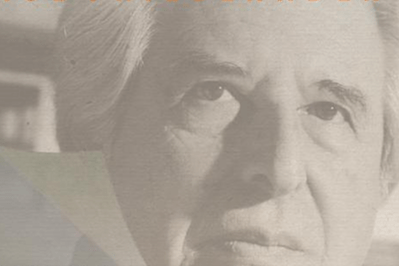
Other Press
“Where Memory Leads: My Life”
A book by Saul Friedlander
The miracle of Pulitzer Prize-winning author and Holocaust scholar Saul Friedlander, now 84, is that after losing his beloved parents to the Auschwitz death camps while he was hidden in a convent on the outskirts of France, his heart did not close. But it never fully opened either.
Friedlander was left in the care of nuns when he was only 10. He embraced Catholicism wholeheartedly and was baptized. He was about to prepare to become a Jesuit priest when, at age 16, he was told the truth about his parents’ deaths and his Jewish heritage. His parents were educated and assimilated secular Jews who were born in Prague. They fled to France to escape the Nazis, only to become trapped again. After securing his placement at the convent school, they attempted to flee to Switzerland, but never made it and were deported to Auschwitz. He fled the convent for Israel, where he became an ardent Zionist and a member of Betar, the youth movement of the right-wing Irgun that was led by Menachem Begin. Except for his time at the convent, he has never been religious. He struggles now to remember his parents. His most prominent memory is of being alone in the world.
 Where Memory Leads: My Life
Purchase in the Truthdig Bazaar
Where Memory Leads: My Life
Purchase in the Truthdig Bazaar
Friedlander’s first memoir, “When Memory Comes,” was written in 1979. It focused on his early life, his escape to Israel and his attempts to find his place in the world. Forty years later, Friedlander has produced a sequel, “Where Memory Leads: My Life,” in which he confesses that his first memoir painted a far rosier picture of his shaky survival than was the case.
One senses that young Friedlander was often uncertain about the authentic essence of his core self. So much of his energy was thrust into creating a false persona of competence to mask the trauma that lay beneath it. He admits in “Where Memory Leads,” “People who, like me, lived their childhood under catastrophic circumstance, may have built a ‘normal’ exterior. Yet, no matter how ornamented the façade may appear, some flaw invariably remains at the core of their personality. A strange dynamic ensues: you can’t get rid of the flaw, but to offset it, you tirelessly improve the exterior—which does not help much and, for many years, will keep you desperately toiling, never secure, always anxious. This recurrent feeling gets ultimately numbed but it did accompany me as some kind of basso continuo through the ups and downs of a good part of my checkered existence. …”
Friedlander has spent most of his life taking medications not only for crippling anxiety and depression, but also for other conditions such as claustrophobia, agoraphobia and debilitating panic attacks. He has suffered as well from a bleeding ulcer that required surgeries and other treatments.
The greatest cost, however, has been his inability to deal comfortably with those closest to him. He married and had children, but he has repeatedly been told that he is emotionally cut off and that his soul is damaged. He finds it far easier to connect with music, cinema or a political cause than navigate the complications of an intimate encounter with someone he loves.
During his years in Israel, he held many jobs that placed him at the center of Israel’s vital beginnings. He worked for the Foreign Ministry, at the Israeli embassy in Paris, and the military attaché’s office where he was privy to top secret dealings between Israel and France as they joined forces against Egypt. In 1958, he worked in Manhattan for Nahum Goldmann, then president of the World Jewish Congress. In New York he met his wife, Hagith Meiry, a pianist whose parents had immigrated to Israel where her father held a prestigious post in the Israeli government. He also befriended men like Hans Kohn, Martin Buber, Gershom Scholem, Hugo Bergmann, Ernst Simon, and Arthur Ruppin, who were working on the problem of a lasting peace between Israelis and Palestinians. Most of them, including Friedlander, supported a binational state. A few years later, he worked for Shimon Peres.
Although these jobs placed him in the center of Israeli political life, Friedlander felt unmoored. He was never completely comfortable as an Israeli or able to embrace the Hebrew language as his own. He wrote his books in English, but insists he has always thought in French, a language he reveres along with French literature. He adores Marcel Proust’s “À la recherche du temps perdu,” Gustave Flaubert’s “L’Éducation Sentimentale” and Alain-Fournier’s “Le Grand Meaulnes.” After arriving in Israel, he often returned to France, drawn to its elegance and sophistication. He loved the Romanesque, Gothic and Baroque churches that littered the French landscape, and was moved by the organ music that drifted into the streets. Yet if someone asked him to declare his core identity, he claims he would answer without hesitation, “I am a Jew, albeit one without any religious or tradition-related attachments, yet indelibly marked by the Shoah. Ultimately, I am nothing else.”Friedlander was determined to study the Holocaust in an attempt to understand the incomprehensible. His eventual masterworks, “Nazi Germany and the Jews Volume I: The Years of Persecution, 1933-1939,” (1994) and “Nazi Germany and the Jews, 1939-1945: The Years of Extermination,” (2007) were universally lauded by critics as ingenious intertwinings of newly available documents with historical research that allowed the reader to grasp the extent of the Nazi massacre. Friedlander used local German police reports, diary excerpts and letters left by Jews awaiting extermination along with the statements of witnesses at postwar trials. His work included reactions from Anne Frank and Adam Czerniaków, the head of the Jewish administration of the Warsaw Ghetto, as well as responses of horror and disbelief from lesser-known individuals as they awaited their deaths. His narrative swept over the entire European continent exposing the silence of the clerics, and the passivity and compliance of those who watched their Jewish neighbors disappear. The intellectual class remained mute as their colleagues were removed from university positions and sent away with other Jews. Friedlander also includes letters from Wehrmacht soldiers to their girlfriends and wives, writing about the mass killings they had witnessed or participated in.
In spite of a lifetime exploring the Nazi tragedy, Friedlander has not succumbed to nationalist or paranoid impulses. He remains committed to speaking out about injustice wherever he sees it, and Israel is often the target of his attacks. He admits to taking part in the exultation following the Six-Day War, but regrets his past behavior as woefully ignorant. He is ashamed that “I, who of all people should have understood what occupation does to the occupied and the occupier, didn’t see any ‘writing on the wall’ embarrasses me from hindsight. How didn’t I perceive that notwithstanding the economic benefits enjoyed by many Palestinians (the term was not yet commonly used), humiliation was lurking and it was just a matter of time for humiliation to turn into a thirst for revenge, a need to inflict pain on the occupier by any available means? It would lead to repression that would intensify the anger and turn into rage. This is, as we know, the disastrous course that events were to follow. The only thing I perceived soon enough was the danger of moral degradation that the occupation would foster within Israeli society.”
He is equally clear on the grotesque misperceptions and latent anti-Semitism that infect parts of this country’s progressive left. (Friedlander spent the last several decades teaching history at UCLA.) He writes about “[the left’s] total misunderstanding of Nazism and fascism, tags they applied so easily to the existing democratic systems, either out of ignorance or in bad faith; by their native infatuation with Mao or Che Guevara; and their rabid hatred of Israel, which at times sound like anti-Semitism. As for the outbursts of wanton violence that sporadically shook Germany and Italy then and in later years, they appeared abhorrent to me. The German philosopher Jürgen Habermas was right in calling leftist extremism ‘Linkfaschimus’ (left fascism). Much later, I encountered remnants of these ideological zealots who mostly called themselves Trotskyites, but were nothing less than purebred Stalinists.”
When Friedlander wrote his first memoir in 1979, he had trouble finding his narrative voice. His publisher returned the first draft, calling it interesting but lacking emotional resonance. Friedlander then went to France to visit an old friend from his boyhood in the convent, who became a Trappist monk. When he returned from his visit, he realized he hadn’t ever discussed with his friend the reason he was in the convent in the first place. He wrote his friend a letter explaining his origins, and in doing so, was finally able to find the expressive voice he used in his book.
With this new memoir, he seems to have no trouble finding his voice. We are immediately riveted by his fierce intelligence and candor as he reflects upon his long life, finally willing to share his deepest regrets and sorrows. He worries that perhaps he could have been a better and more demonstrative father. He laments the losing of old friends for reasons he did not always understand. He remains troubled by his emotional obtuseness, particularly with those closest to him. One senses he takes the most pride in what he has written about the Holocaust. He feels his work has helped the world understand the pain and suffering of the victims of the Shoah in a way few other historians were able to.
There is a resilience about Saul Friedlander that shouts out to us from each page as he continues to struggle with the turbulence of the world he was born into, and his own, still fragile place in it.
Independent journalism is under threat and overshadowed by heavily funded mainstream media.
You can help level the playing field. Become a member.
Your tax-deductible contribution keeps us digging beneath the headlines to give you thought-provoking, investigative reporting and analysis that unearths what's really happening- without compromise.
Give today to support our courageous, independent journalists.
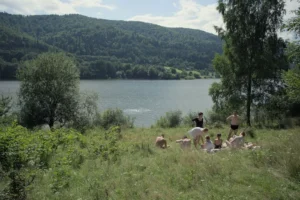
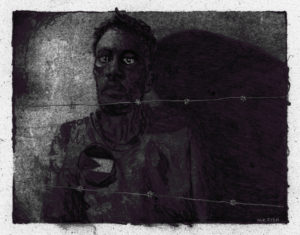
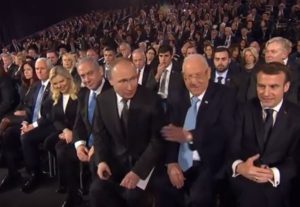
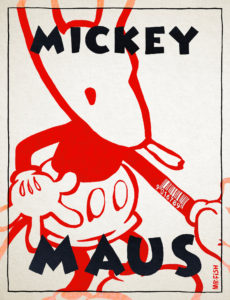
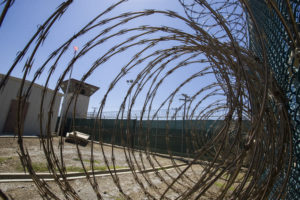
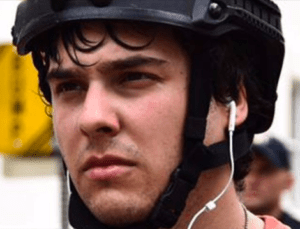
You need to be a supporter to comment.
There are currently no responses to this article.
Be the first to respond.